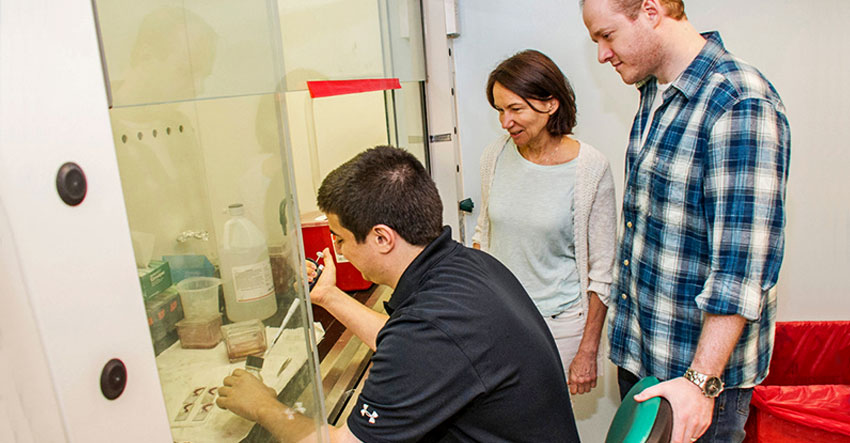
Raising awareness against breast cancer is nothing new. Most, if not all of us, have seen the symbolic pink ribbons, and reminders for self-examination. Many of us have participated in walks, runs or other breast cancer-related events. We even have a national month dedicated to awareness.
Why does this disease garner so much attention? Each year, about 230,000 new cases of breast cancer are diagnosed in women in the U.S. It remains the third leading cause of death, behind only heart disease and lung cancer. Here’s an even scarier statistic – of the new cases, about 20 percent of women will be diagnosed with “triple negative” breast cancer (TNBC), a deadly form of breast cancer that does not respond to standard treatments.
TNBC is a subtype of breast cancer that lacks the three most common types of receptors known to fuel breast cancer growth: estrogen, progesterone and human epidermal growth factor receptor 2 (HER2). Since common treatments target these receptors, TNBC is considered a more deadly form of breast cancer.
Luckily, SUNY is leading the way to helping those diagnosed with TNBC. University at Albany School of Public Health professor JoEllen Welsh and her team at the Cancer Research Center (CRC) are among those working toward developing therapies that can successfully halt TNBC.
Her team has received a $1.76 million grant from the National Institute of Health’s National Cancer Institute to explore the role of Vitamin D in fighting TNBC. They’ve already made some great advances. Specifically, the team discovered that 1,25D — the active form of Vitamin D — suppresses the activity and expression of hyaluronan synthase-2 (HAS2), a gene that is overexposed in some TNBC tumors.
HAS2 encodes for an enzyme that activates the cell receptor CD44, which has been associated with the “tumor initiating cell” properties in TNBC. Triple Negative Breast Cancers need CD44 to survive; therefore, discovering a way to stop or interrupt the signaling process holds promise for treatment.
“Women with TNBC whose tumors overexpress HAS2 have a significantly reduced survival, suggesting that targeting this gene is likely to have an impact on disease progression,” said Welsh, a professor of environmental health sciences at UAlbany’s School of Public Health. “Our preliminary data strongly suggests that Vitamin D suppression of HAS2 activity represents a feasible approach for interrupting the CD44 signaling process in TNBC cells.”
Welsh and her team plan on doing more research with Vitamin D and other natural products to study both the independent and interactive effects against TNBC.
Stay tuned for updates!




This is a great research and article. This will pave way for further research in other forms of cancer especially the ones catalyzed by HAS2